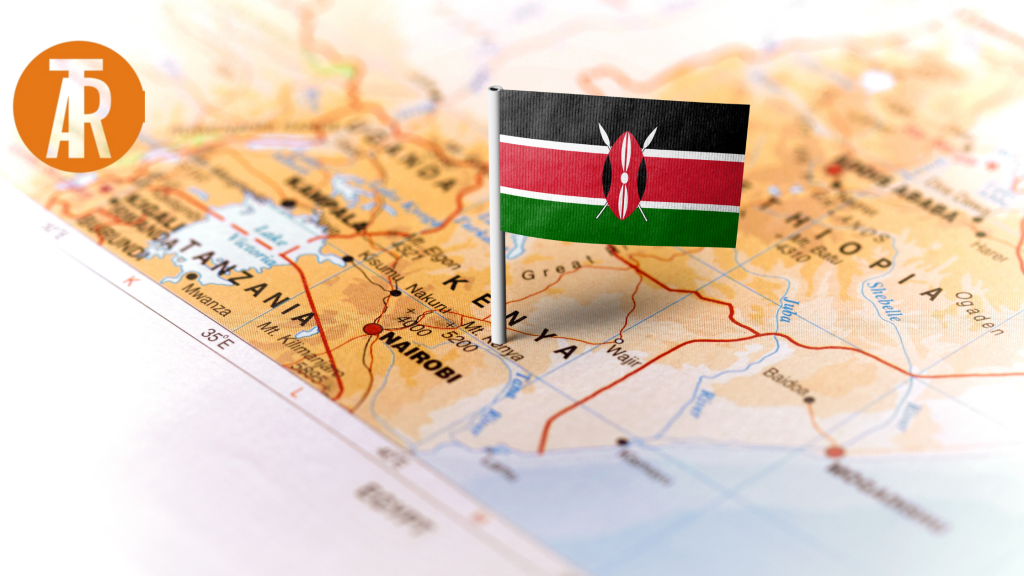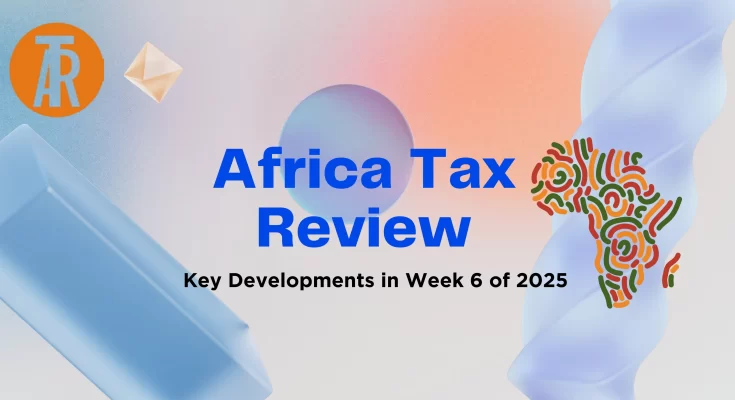Table of Contents
Africa Tax Review: Key Developments in Week 6 of 2025. As African governments continue to pursue fiscal consolidation, stimulate growth, and broaden their tax bases, Week 6 of 2025 (February 3–9) saw a number of significant tax policy shifts across the continent.
From the implementation of global tax standards to digital tax reforms and domestic revenue mobilization strategies, the week’s activities signal ongoing realignment of African tax systems with global best practices.

1. South Africa: Budget Crisis, VAT Adjustments, and Global Minimum Tax
On February 5, 2025, South Africa’s long-anticipated national budget speech was unexpectedly postponed due to internal disagreements within the ruling coalition over a proposed VAT increase.
The African National Congress (ANC) proposed a 2% hike in the Value-Added Tax (VAT), aiming to raise revenue amid growing fiscal deficits.
However, the Democratic Alliance (DA) strongly opposed the plan, citing the burden it could place on consumers and small businesses. This marked the first time in 31 years that the South African budget presentation was delayed (Associated Press, 2025).
Despite the political friction, the National Treasury later confirmed a phased VAT increment—moving from 15% to 15.5% by May 1, 2025, and further to 16% by April 2026.
To ease the impact on low-income earners, the government expanded the list of VAT zero-rated essentials to include dairy liquid blends, canned vegetables, and certain meat products (National Treasury, 2025).
In addition, South Africa enacted the Global Minimum Tax Act, aligning with OECD’s Pillar Two rules. The law introduces an Income Inclusion Rule and a Domestic Minimum Top-Up Tax on multinationals with revenues above €750 million.
It is projected to generate R8 billion in additional revenue in the 2025/26 fiscal year (PwC South Africa, 2025).

2. Kenya: Excise Duty on Digital Services and Social Security Reform
Effective February 1, 2025, Kenya introduced an excise duty on services provided by non-resident suppliers through digital platforms.
This aligns with global trends toward taxing the digital economy and aims to improve tax equity by capturing income from cross-border digital transactions (Meijburg & Co, 2025).
Simultaneously, the government increased the contribution rates for the National Social Security Fund (NSSF), a move targeted at long-term savings growth and social protection enhancement.
Both employers and employees are now required to contribute a higher percentage of gross income to the fund (Meijburg & Co, 2025).

3. Uganda: Domestic Revenue Mobilization Agenda Intensifies
The Ugandan government announced tax proposals to raise over UGX 2.42 trillion (approximately USD 640 million) to support its 2025/26 national budget.
These reforms include amendments to existing tax laws and the introduction of new levies on select goods and services. The Uganda Revenue Authority (URA) has emphasized that the reforms are essential for reducing dependency on external financing and improving budget credibility (Meijburg & Co, 2025).

4. Botswana: Pro-Growth Tax Proposals in New Budget
Botswana’s 2025/2026 national budget, presented during the week, included a series of tax policy measures aimed at fostering investment and fiscal sustainability.
While specific rates were not immediately disclosed, the Finance Ministry highlighted upcoming revisions in corporate tax bands, property tax assessments, and a roadmap for carbon taxation (Meijburg & Co, 2025).

5. Guinea-Bissau: VAT Implementation Takes Effect
Following years of policy debate and technical preparation, Guinea-Bissau officially launched its Value-Added Tax (VAT) system in January 2025.
Week 6 saw the first phase of taxpayer education campaigns and enforcement activities, as the government seeks to modernize its tax base and reduce overreliance on trade taxes (Meijburg & Co, 2025).
Africa Tax Review, Key Developments in Week 6 of 2025: Conclusion
Week 6 of 2025 reflects the diversity and urgency of tax reform agendas across Africa. From tackling base erosion and profit shifting (BEPS) to embracing digital taxation and expanding social protections, African tax authorities are demonstrating increased agility in adapting to global fiscal shifts.
While the road ahead will require policy coherence, institutional capacity, and stakeholder engagement, the week’s developments signal Africa’s deepening commitment to sustainable tax governance.
Stay tuned with Africa Tax Review for more tax updates in the continent.
Olatunji Abdulrazaq CNA, ACTI, ACIArb(UK)
Founder/CEO, Taxmobile.Online




